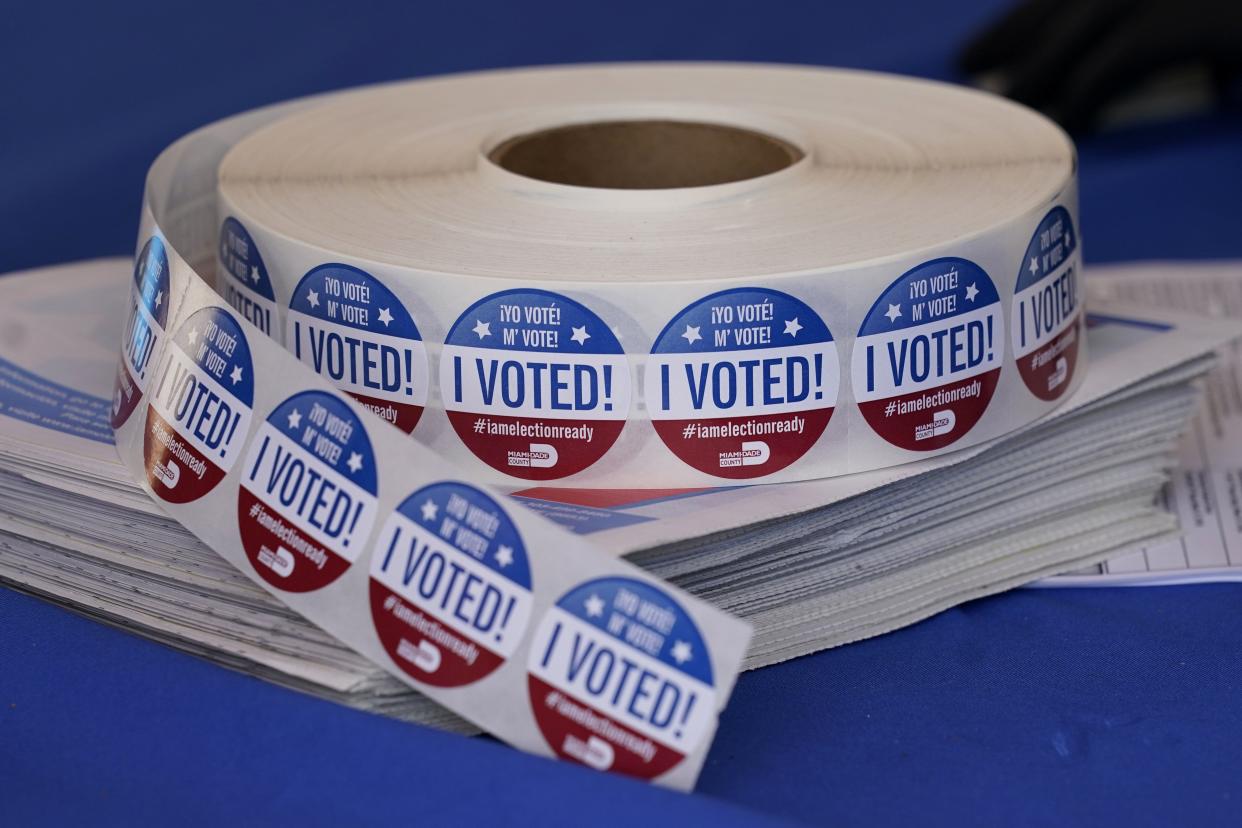Activists turn to constitutional amendments, not lawmakers, to rewrite Florida's laws | Frank Cerabino

You might not want to linger too long outside libraries, supermarkets or other parking lots during the next few weeks.
It’s where political petitions tend to be foisted upon unwary Floridians just trying to get to their cars.
We’re awash with causes these days presented in the worst way possible: Through proposed referendums that alter the state Constitution.
More: Now that Florida has tackled vaccines, it's time to address hand-washing mandates | Frank Cerabino
More: Seminoles have themselves to blame for Florida gambling pact problem | Frank Cerabino
More: Nancy Pelosi a new Florida resident? Only in your disinformation fever dreams | Frank Cerabino
There are, at present count, 22 different so-called citizen initiatives in the pipeline for the November ballot next year. If they get enough petition signatures, these initiatives could be presented to voters as new amendments to the Florida Constitution.
These amendments propose fast-tracking new laws regarding marijuana, prisons, abortion, game farm hunting, pandemic lockdowns, sports betting, school prayer, voting rights, wetlands dredging, toll roads … the list goes on.
If you have the money to launch a statewide petition drive, you can become your own Florida Legislature.
Political change via petition
Florida law says that to qualify for the ballot, a citizen’s initiative must get petition signatures that amount to at least 8 percent of the total voters in the last presidential election.
For the current crop of initiatives, that means 891,589 signatures. And the distribution of those signatures has to amount to 8 percent of the voters in at least 14 of Florida’s 27 congressional districts.
It’s a daunting task, but there's a whole industry of petition-signature wranglers out there. So, this is something that gets routinely handled by deep-pocket industries looking to evade the normal lawmaking process.
For example, with the state’s sports-book gambling pact with the Seminole Tribe in dispute, tens of millions of dollars are being spent by gambling rivals to enshrine the state’s gambling laws in the Florida Constitution.

The online betting sites FanDuel and Draft Kings have put up a combined $33 million to bankroll Florida Constitution amendments that further their narrow interests. Their group is called “Florida Education Champions.”
“By signing the Florida Education Champions petition, you can allow Floridians, 21 and older, to use their favorite online sports betting platform and ensure any new revenue MUST go to increase education funding in Florida," their online pitch to Florida voters says.
Signature battles to get on the ballot
Meanwhile, The Seminole Tribe has put up $20 million to thwart that petition drive. According to Politico, the Seminoles are paying petition gathering firms to not work in Florida, and offering buyouts to signature gatherers to keep the rival gambling interests from meeting the signature threshold.
For those measures that do get enough signatures, voters end up making big decisions at the end of a long ballot in measures presented in 75 words or less. And usually in a crafty way.
Of the 78 ballot amendments in Florida proposed since the year 2000, 56 of them have been approved. That’s a 71 percent success rate.
But it’s a cumbersome and foolish way to govern. Theoretically, you elect lawmakers to make law. That’s why we call them “lawmakers.”
Sidestepping them through the constitutional amendment process puts policy, which often can and should change, into the state Constitution, where it becomes calcified and in need of other constitutional amendments to fix.
Florida voters in 2000 voted for a constitutional amendment to create a high-speed rail system in the state, only to repeal it in another constitutional amendment four years later due to the costs.
As a result of these citizen’s initiatives, the Florida Constitution gets packed with things that ought to be laws decided by our elected representatives. I’m against the confinement of pregnant pigs, but it shouldn’t need to be written into the state Constitution, as it was after becoming a successful citizen initiative.
And if Florida's lawmakers don't like what the citizen initiative dictated — as in the case of the one that called for restoring the voting rights of felons who completed their sentences — they just ignore enacting what the amendment called for.
Too many issues, too little time
I’m guessing that a bunch of the current crop of citizen initiatives won’t make it on the ballot because they’ll fail to get enough signatures. Which is a good thing. Because there are some doozies in the pipeline.
One proposed amendment called the “Prayer in Schools Amendment” would rewrite the Florida Constitution to declare that “prayer is not an expression of religion or denomination in this current climate.”
I’ve seen a lot of creative ways that religious zealots use to evade the church-state separations regarding prayer in public schools. But saying that prayer isn’t religious, well … as attempts go, I’d call that a “Hail Mary.”
There’s another proposed constitutional amendment by a group called Sensible Florida that would allow Floridians who are at least 21 years old to cultivate nine live marijuana plants, but possess no more than 18 live marijuana plants per household.
The number of marijuana plants might seem arbitrary, but the Florida Supreme Court rejected an earlier attempt by the group to have the issue on the ballot because the language was too vague. Meanwhile, Florida lawmakers are starting to pay attention to how often their constituents are pretending they aren't there.
Last spring, state lawmakers passed a bill that would cap contributions to $3,000 from political committees rounding up petition signatures. This would have effectively shut down the expensive process of getting the hundreds of thousands of signatures needed.
But the law was quickly appealed, and in July, a federal judge ruled that imposing contribution limits on groups supporting voter initiatives was a First Amendment violation against political speech.
So, you’ve been warned. The petition gatherers are in the final push. They need to complete their work this month in order to get the signatures verified by county elections officials and submitted to the state by the February 1 deadline.
If somebody's walking toward you with a clipboard, run.
fcerabino@gannett.com
@FranklyFlorida
This article originally appeared on Palm Beach Post: Proposed Constitutional amendments popular bypass of Florida legislature

